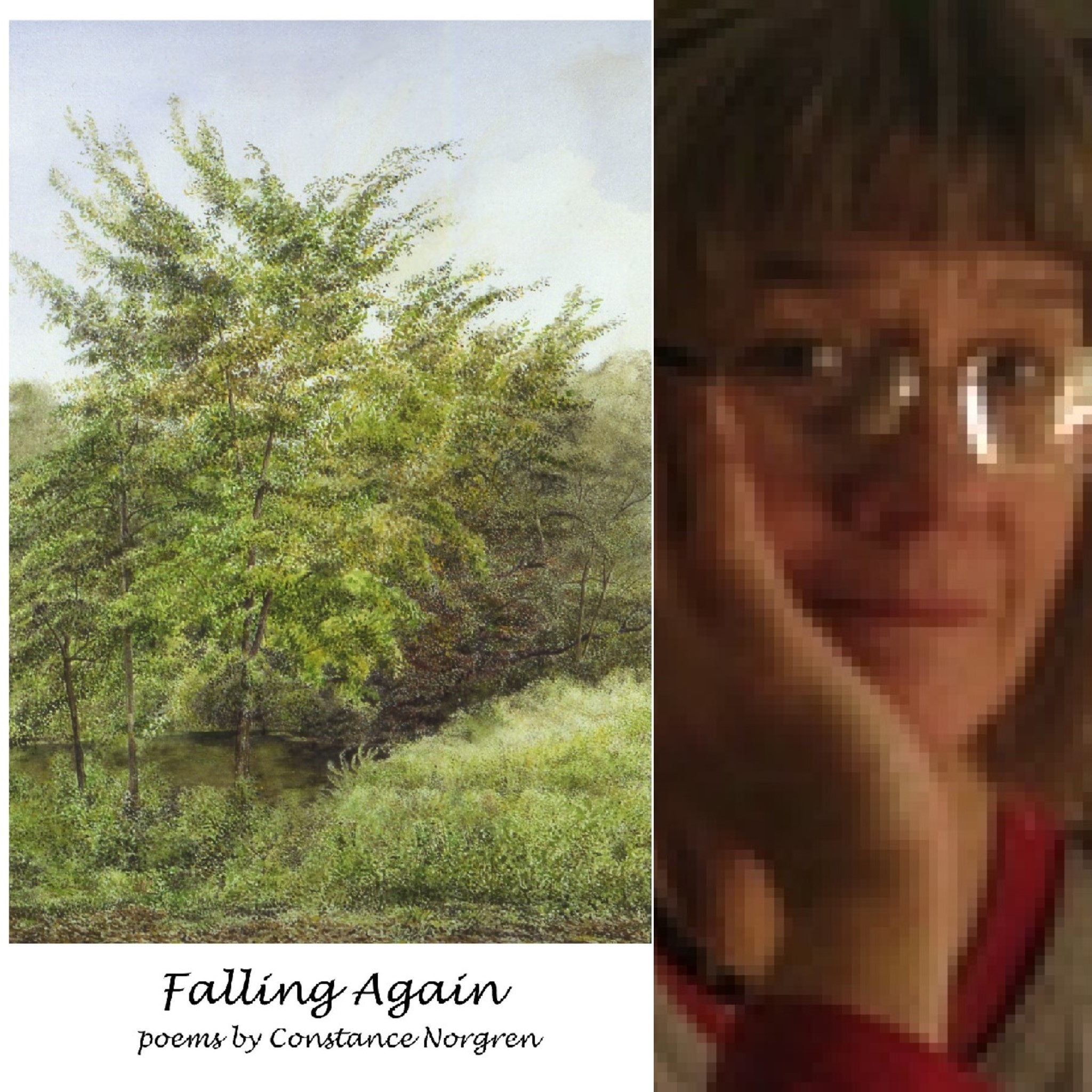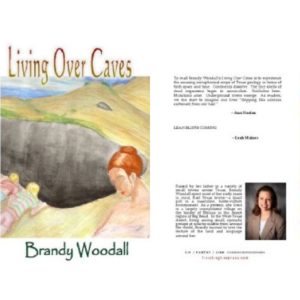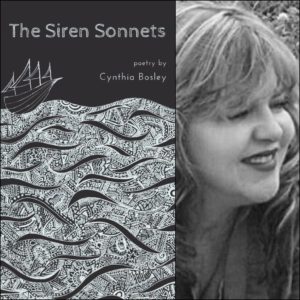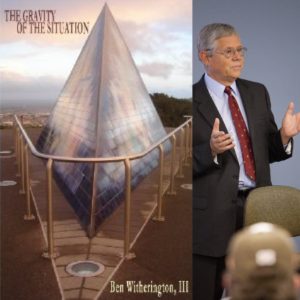Falling Again by Constance Norgren
The idea of gravity runs through these poems. When you are in the river, you travel downstream, or when the rain falls, it runs until it forms a pool.
When you fall in love, there is a sensation of “longing spilled out/into the summer night, so thick/you’d think it would flatten the grass…” The very first poem ties love to falling even when it is just an infatuation and the subject is just fifteen. Not that love is fleeting. Love can last into maturity, as in the poem, “Waiting,” when the speaker “won’t go in without you” but waits with the maturity of years and constancy and patience. The title poem recalls the early days of love, how it is to fall in love with the way someone looks, how powerless we are, as if in the river’s current– “We were carried like Wynken, like Nod—but downriver.” There is a dark connotation because there is no turning back when swept up in a current.
Other poems hint at the timelessness of myth or the magic of fairy tales (“How To” and “Overheard in Summer Woods”). The time then is not today, not long ago, but always, and these poems force the reader to fill in what has happened and draw her own conclusions. In “Bearskin” after Grimm, a mystery explained only by magic or the sinister pull of Satan who has made the familiar bargain of the world for a young man’s soul. In the end, the young man discovers his mistake and sets out to correct it. We don’t know how it will turn out but it is gratifying that the young man has woken up.
Norgren has a clear gaze on what she sees around her, and she knows what it means and can make the reader see what she sees. “June and What Goes On Here” has these lines:
“walls are for leaning on, for listening at,/
for making it hard to know what is happening next door/
but we know anyway.”
Funny, you wouldn’t think a contemporary poet would feel a greater kinship between a 17th century metaphysical poet like John Donne (“Dear John Donne”) than a 20th century modernist like William Carlos Williams, but Norgren has an angry retort to Williams’ “To Elsie”. She finds his description of the serving girl’s “gauds” and his patronizing tone of voice when writing of lower class girls as “tricked out.” Other surprising subjects are “X-Ramps”, an expert observation of a young skateboard artist whose movements are compared to the swells of the ocean, and “From Eden” a poem in the voice of Eve who discovers: “It came to me: I am not him.” The poem ends with an open ended question: “What will come of this?” The question seems ironic since we all know what happened to Eve and the rest of the story. How resonant it sounds to one long married person. Why attach yourself to one person when total communion is not possible?
Besides the poems about love, and there are many, one of my favorite poems is “What I know About Fire” with these lines: “Someone comes by/pokes the bottom log a little,/gives the whole thing air/ and shazam, it’s blazing/ a told secret, a just sharpened knife.” Here the simple language shows Norgren’s mastery of plain speech’s ability to forge a complex feeling.
Rating: ***** [5 of 5 Stars!]






Reviews
There are no reviews yet.